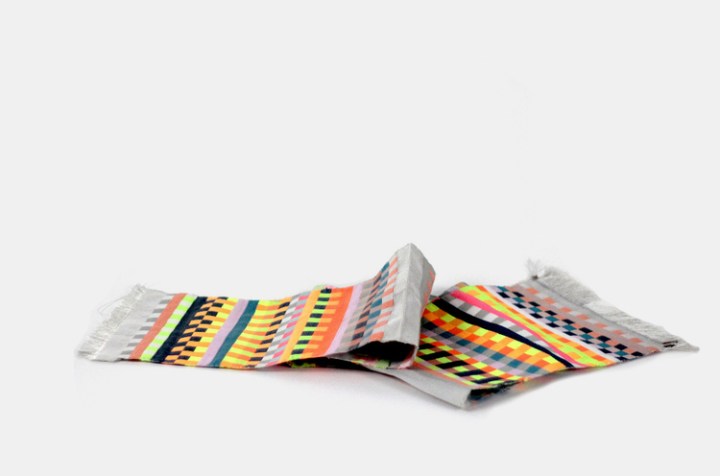
Inglesby’s company takes a decidedly more visual and artistic role in popularizing understanding of DNA. Other startups dance on the dangerous line between genetics and eugenics, but Inglesby wants to generate a more relatable approach to the building blocks of humanity.
To gather the genetic information needed to create its DNA art, the company first outsources DNA samples in the form of cheek swabs to AlphaBiolabs, a facility that specializes in genetic testing. These samples are then tested and scanned multiple times to search for specific sections of DNA information called Short Tandem Repeats (STRs). These genetic code segments vary most from person to person, so your DNA scarf would look nothing like that of your best friend.
AlphaBiolabs analyzes 23 specific STRs from each genetic sequence, and then assigns numerical values to each one. Those numerical values are translated to colors, as selected by Inglesby. The colors are what become the woven patterns and fibers in Dot One’s personal DNA product line. “When you do DNA profiling, they run your sample through a gel and it creates a quite geometric, linear pattern. The prints are reflective of the process itself,” said Inglesby.
You can order a DNA Personalized Print from Dot One for about $206 at the moment, whereas one of the company’s Personalized DNA Scarfs will set you back roughly $461. Each product order comes with a DNA testing kit and a guide to understanding genetics and DNA profiling. For a personalised family tree or tartan to represent the DNA that runs through your ancestry, you’ll have to get in touch with Dot One directly.


